Black History Month Special Edition: Henrietta Lacks; the immortal woman
Honouring Henrietta Lacks, the Black Female Change-maker Who Went Unrecognised in Her Lifetime
Let’s talk about Henrietta Lacks, the woman who years after her death still helps the healthcare system today, enabling solutions to the most aggressive diseases with her immortal cells. It all began in 1951 when Henrietta, aged 31, had irregular vaginal bleeding and visited The John Hopkins Hospital to be diagnosed. Dr Howard Jones examined Henrietta that day and found a large tumour in her cervix. Henrietta gave sample tissues to get answers as to why she had the bleeding and to receive treatment in the hope that doctors would help her recover. Henrietta, a mother of five, had received some radium treatments however, only 8 months after her cancer diagnosis, she lost her battle with the disease and passed away.
Neither Henrietta nor her family members were informed about what happened with Henrietta’s tissues taken during a biopsy . These tissue samples are sold today between $400 to $1,000 per HeLa or modified cell vial (Upham). Henrietta’s samples were sent to Dr George Gey’s lab for analysis without her permission or knowledge. Henrietta had what millions of people do not: immortal cells that double every 20 to 24 hours. Rebecca Skloot’s book The Immortal Life of Henrietta Lacks synopsis explains the cells:
“The first “immortal” human cells grown in culture, they are still alive today, though she has been dead for more than sixty years. If you could pile all HeLa cells ever grown onto a scale, they’d weigh more than 50 million metric tons—as much as a hundred Empire State Buildings. HeLa cells were vital for developing the polio vaccine; uncovered secrets of cancer, viruses, and the atom bomb’s effects; helped lead to important advances like in vitro fertilisation, cloning, and gene mapping; and have been bought and sold by the billions.”
At the height of the Tuskegee Syphilis Study, also known as the Tuskegee Experiment (which is now acknowledged as a major human rights breach), the consent of Black people was not commonly honoured as a medical concept by many scientists in the US. The institution that took Henrietta’s cells without her consent, John’s Hopkins Medicine, have since published a post on their website acknowledging that this should never have happened without her consent. The post includes “Having reviewed our interactions with Henrietta Lacks and with the Lacks family over more than 50 years, we found that Johns Hopkins could have – and should have – done more to inform and work with members of Henrietta Lacks’ family out of respect for them, their privacy and their personal interests. Though the collection and use of Henrietta Lacks’ cells in research was an acceptable and legal practice in the 1950s, such a practice would not happen today without the patient’s consent.”
Henrietta’s immortal cells were used by many institutions and her cells were even used in the testing process while developing COVID-19 vaccinations during the height of the coronavirus pandemic. The year 2020, when WHO declared COVID-19 as a worldwide pandemic, was also the centennial of Henrietta’s birth and if she were still alive, she would have seen how her immortal cells contributed to a solution to a major global healthcare crisis. During 2020, millions of people across the world came together to protest George Floyd’s murder by the US police and the #BlackLivesMatter protest increased visibility of many important issues, such as the HeLa tissue cells being used without Henrietta’s or her family’s consent. Rebecca Skloot an investigative journalist played a big role to bring Henrietta’s stolen cells to the eye of the media and mainstreaming the exploitation of minoritised people’s healthcare rights in her publishing of the 2010 New York Times bestseller: The Immortal Cells of Henrietta Lacks, and by starting the Henrietta Lacks Foundation which supports people who have made contributions to scientific research without their consent or personal benefit.
Rebecca Skloot’s bestselling book The Immortal Life of Henrietta Lacks was also made into an Emmy nominated HBO film in 2017 featuring Oprah Winfrey. (Trailer on the left.)
Further reading:
Also:
Visit Henrietta Lacks Foundation’s website: http://henriettalacksfoundation.org/
Learn more about cervical cancer on: https://www.nhs.uk/conditions/cervical-cancer/
Visit Macmillan’s website to read frequently asked questions about cervical cancer screening: https://www.macmillan.org.uk/cancer-awareness/cervical-screening-awareness-week
If you find what we talk about on our website, social media or at our events distressing or difficult to consume, please visit our wellness page to learn about free resources: www.thevavengers.co.uk/wellness
Credit
Research & Editorial Volunteer: Eda Aksu
Blog Author: Sema Gornall
Editor: Ellie Melvin
Brand & Image Designer: Megan Barclay
Works Cited
Cell’s commercial value information can be found at:
Upham, Becky. “The Estate of Henrietta Lacks Sues Biotech Company For Selling 'Stolen' Cells.” EverydayHealth.com, 8 Oct. 2021, https://www.everydayhealth.com/public-health/the-estate-of-henrietta-lacks-sues-biotech-company-for-selling-stolen-cells/.
Quote 1: From the book of Rebecca Skloot
“The Immortal Life of Henrietta Lacks by Rebecca Skloot.” Goodreads, Goodreads, 2 Feb. 2010, https://www.goodreads.com/book/show/6493208-the-immortal-life-of-henrietta-lacks
Quote 2:
“The Legacy of Henrietta Lacks.” Johns Hopkins Medicine, Based in Baltimore, Maryland, https://www.hopkinsmedicine.org/henriettalacks/.
More on Black History Month x The Vavengers
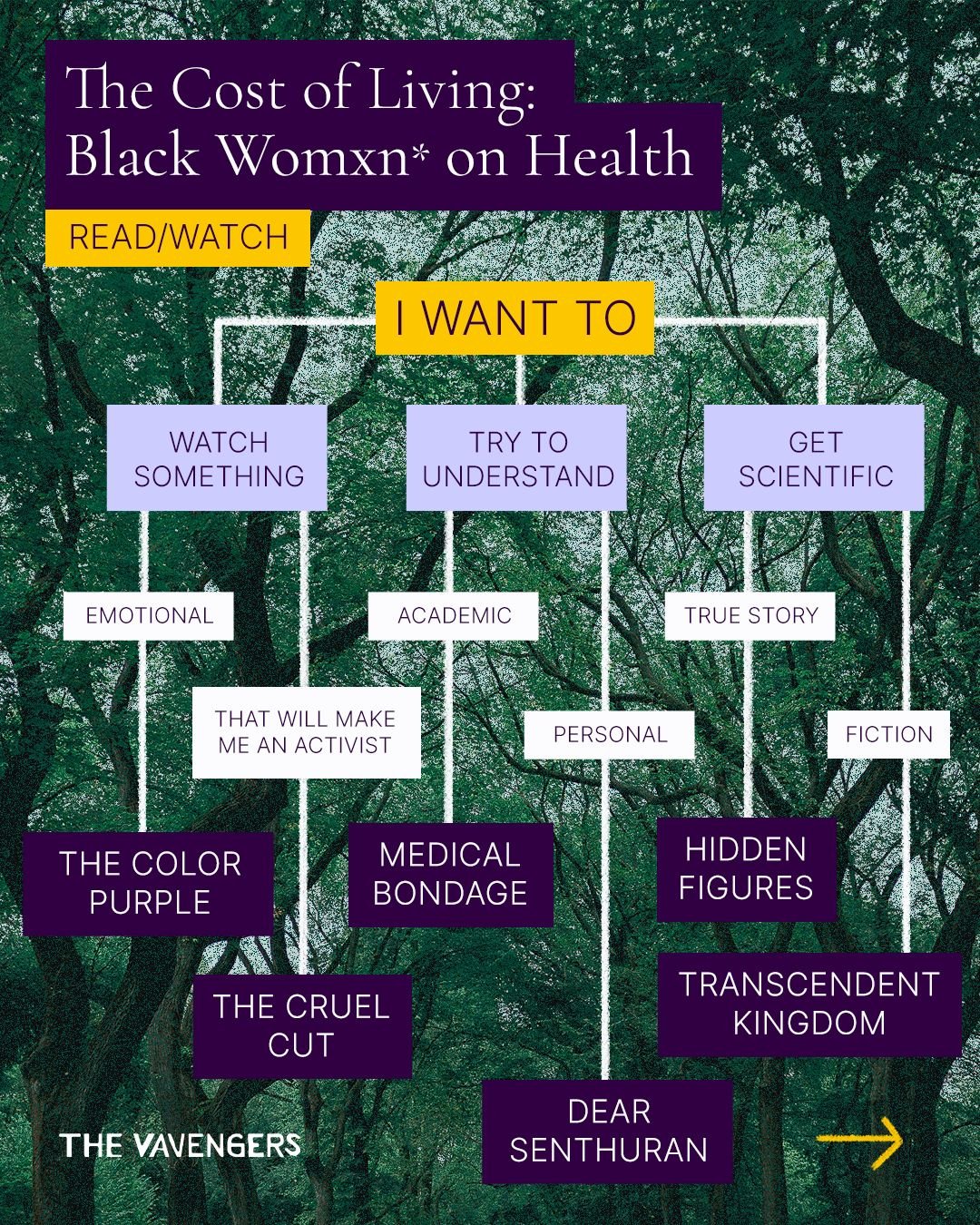
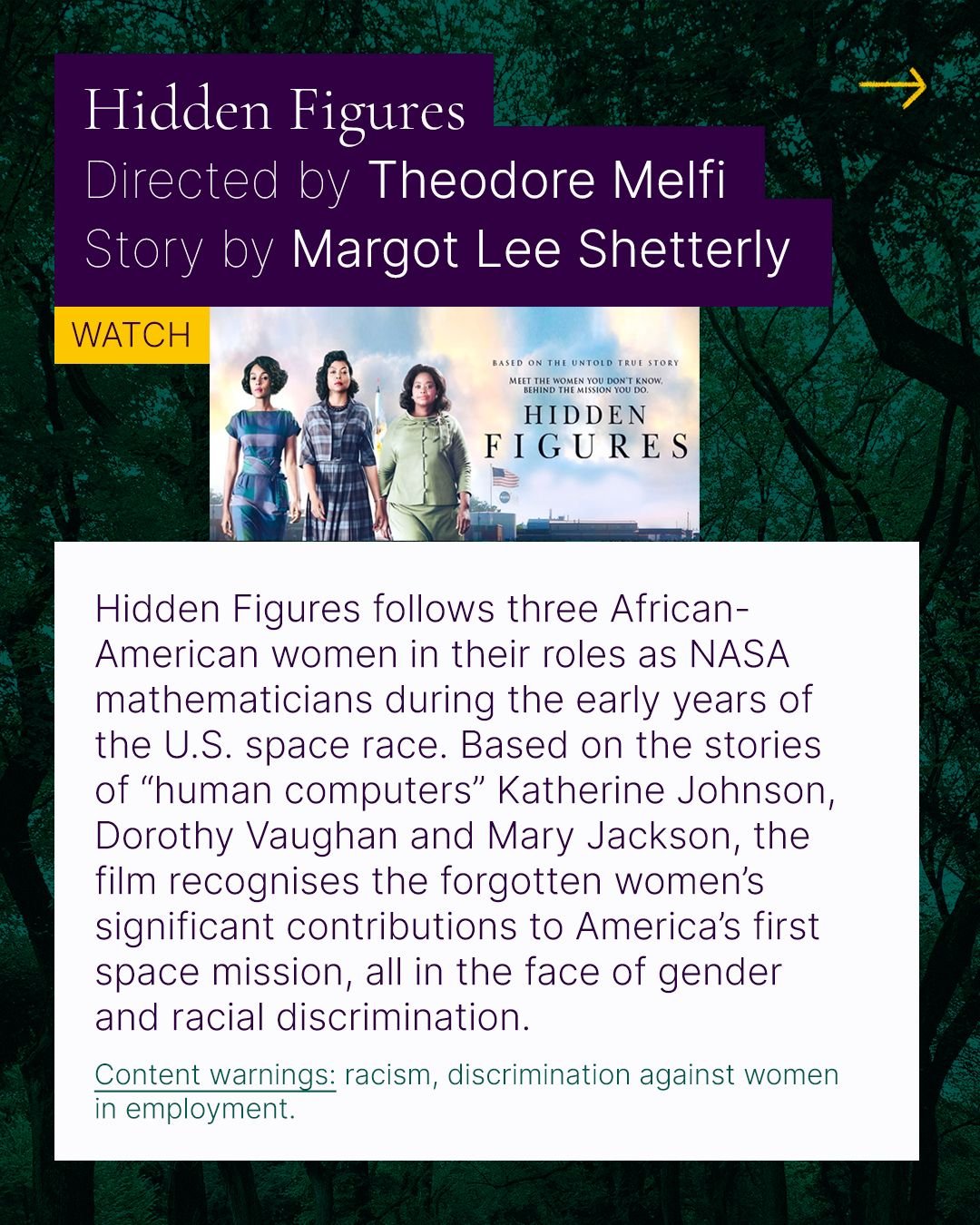
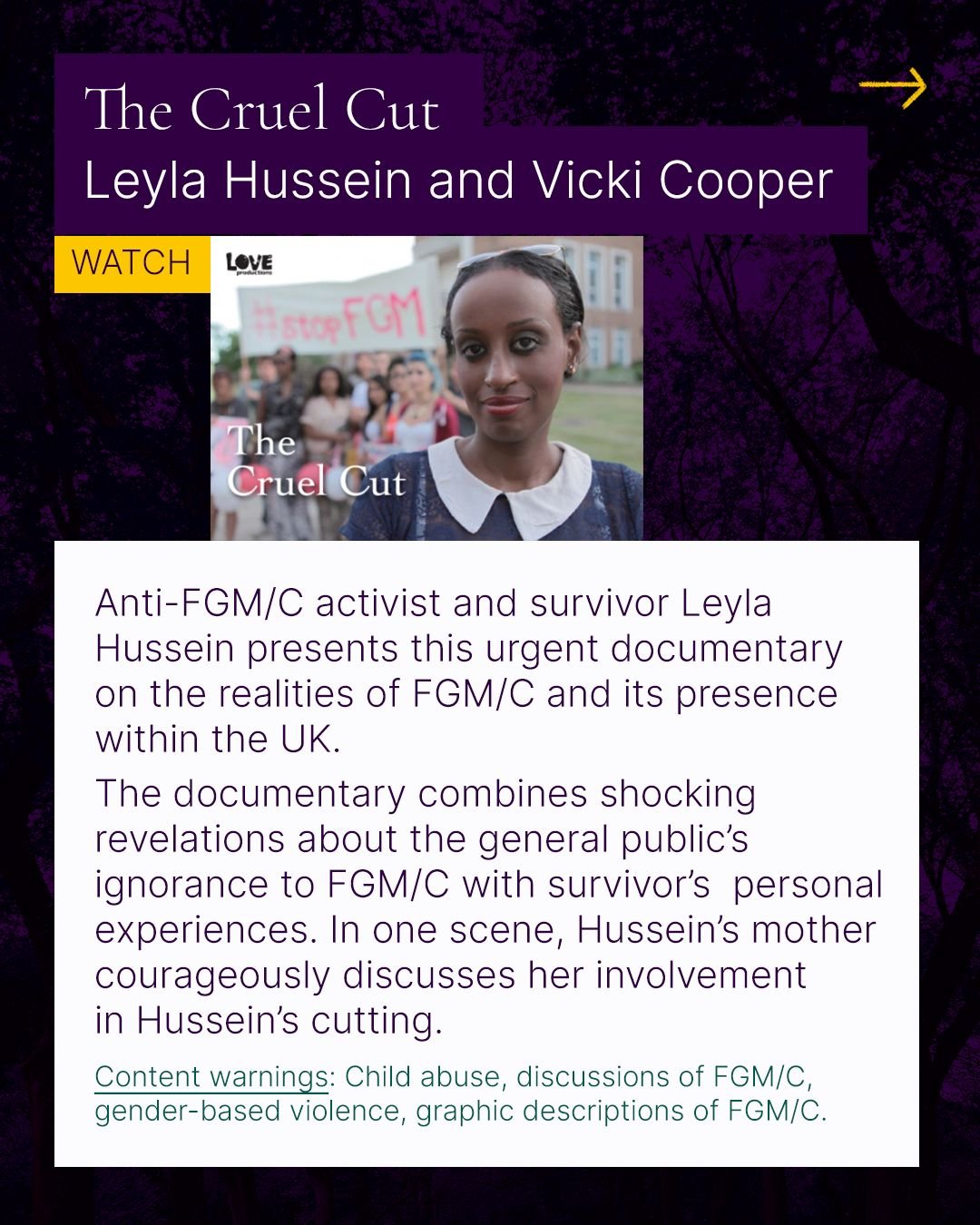
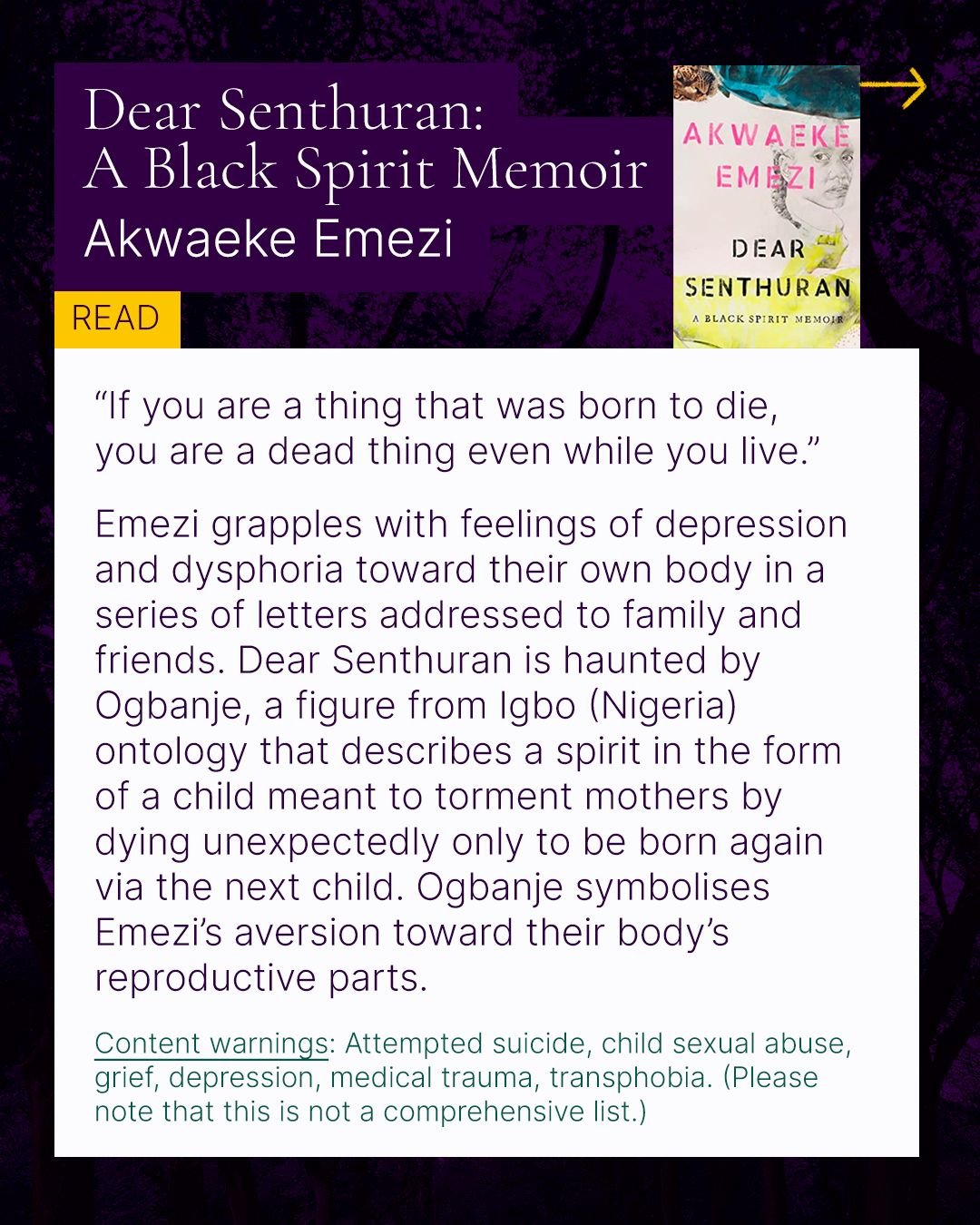
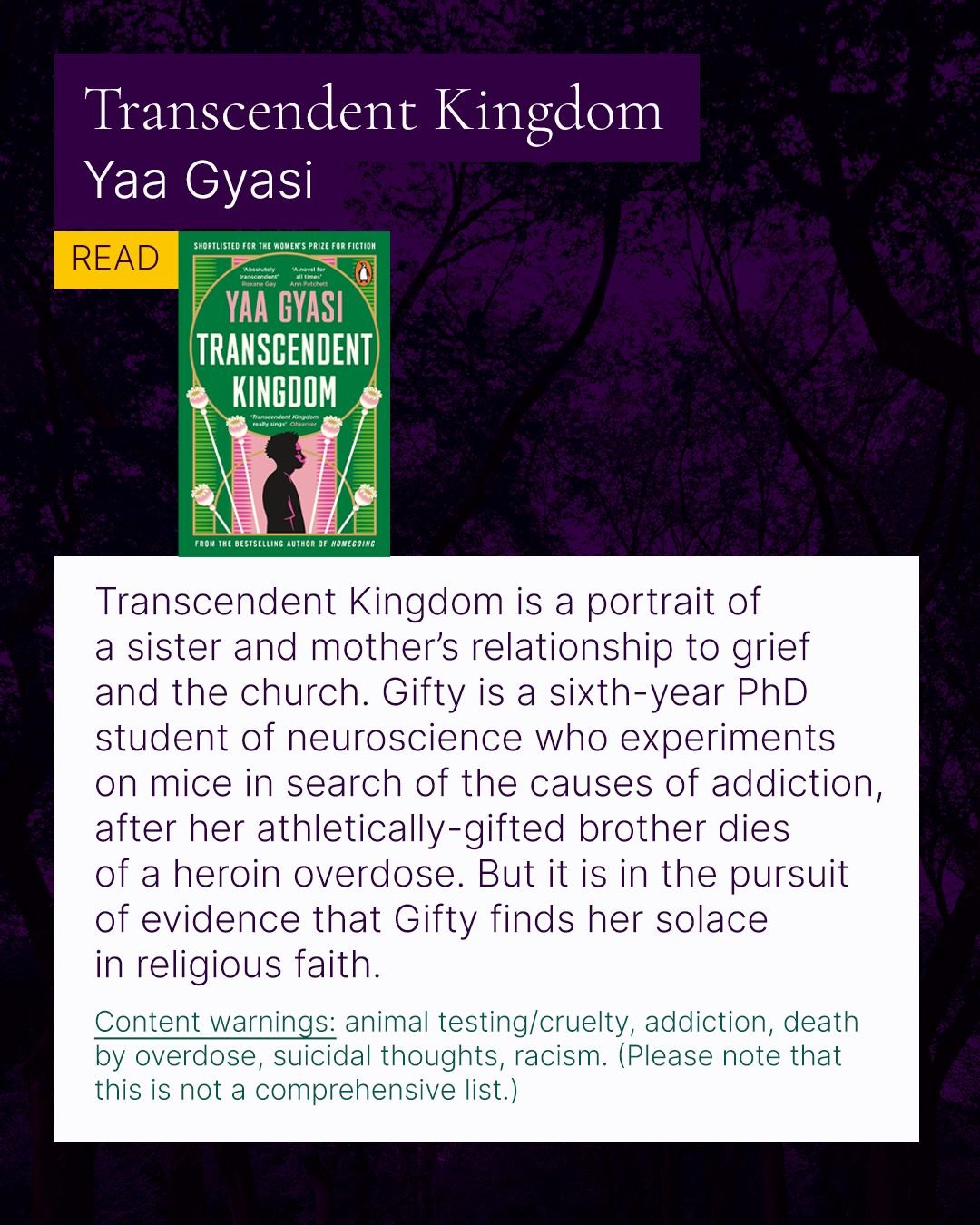
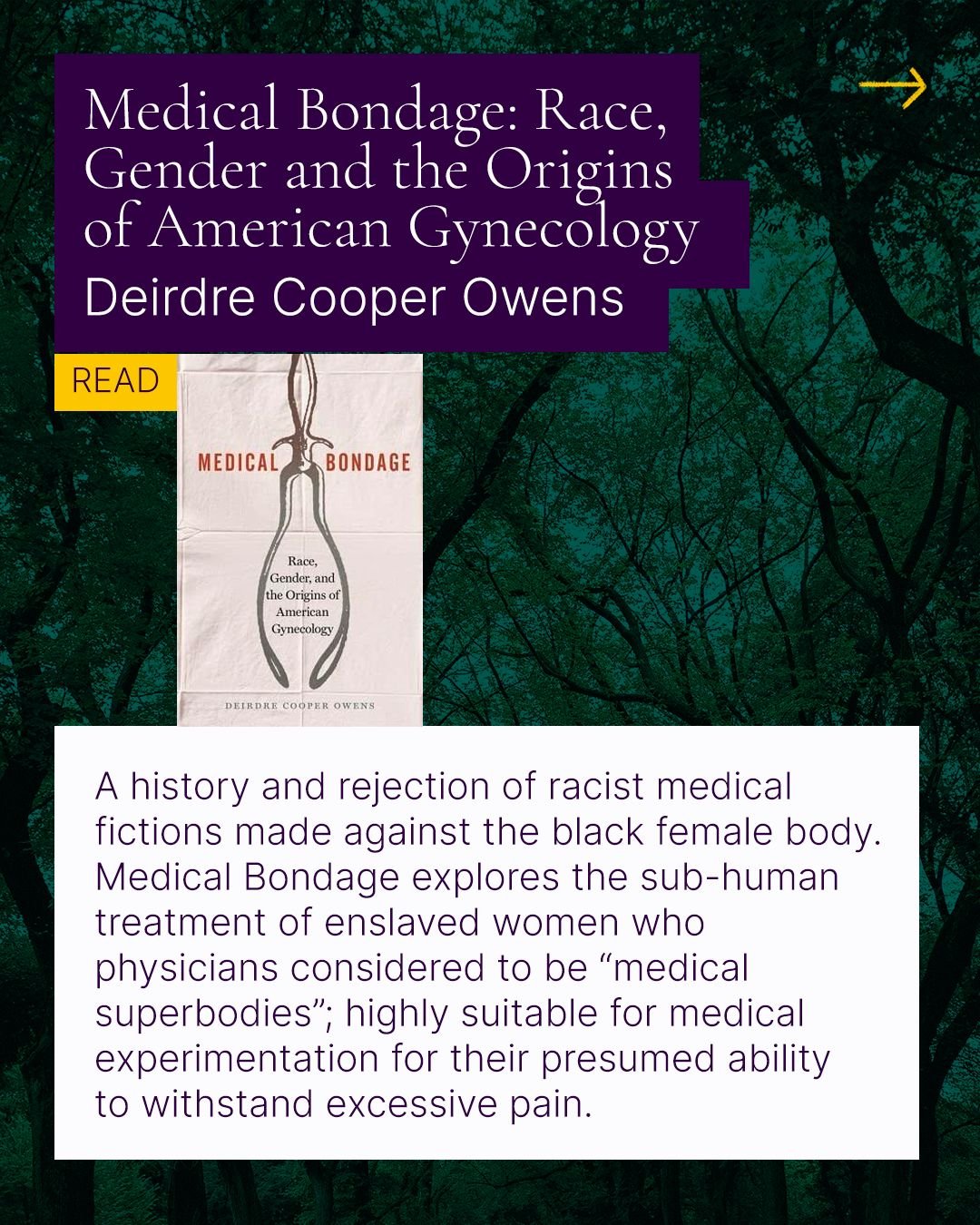
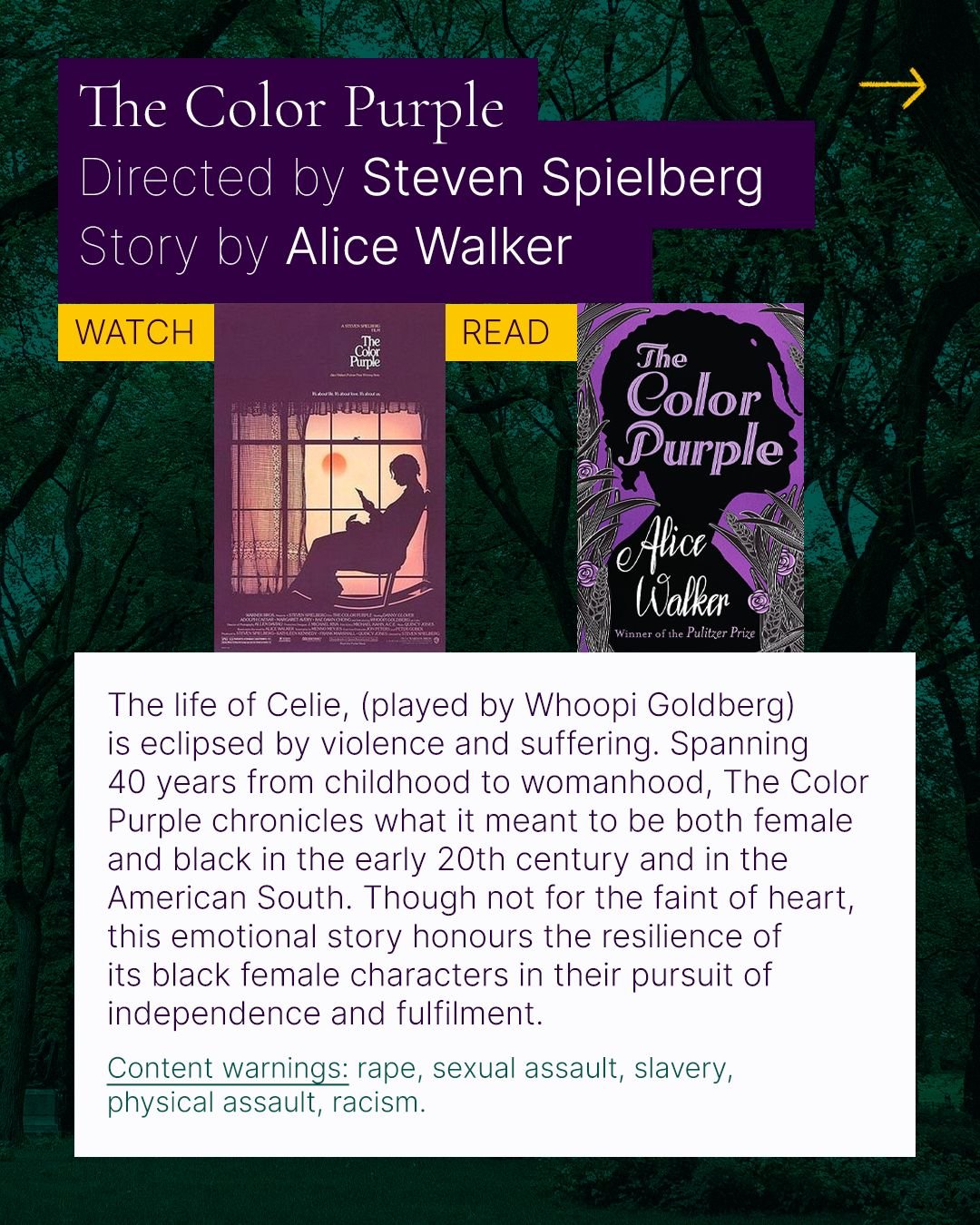
Black History Month TV & Reading List
To continue celebrating Black History Month, our team have put together a list of book and film recommendations to suit wherever you're at in your Black history or anti-racist journey. Start at the top and work your way down the tree to find a piece of culture, created by Black women, that will inspire you in many different ways.
Enjoy and let us know which one you're going to start with on our socials!
*One of the authors identifies as non-binary.
Curated by Ellie Melvin

